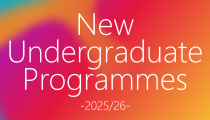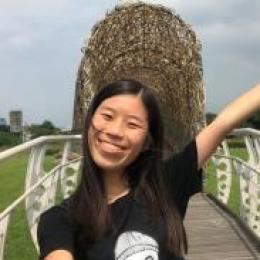Sept 2025 Entry
2 years
66 (plus 4 training credits)
Note: The exact number of credits depends on students' academic background.
Entry Scholarship
- To recognise the outstanding academic performance of students, the department will grant entry scholarship with total amount up to HK$30,000 to eligible students admitted to the programme via Non-JUPAS local senior year admission. Details can be found at https://www.polyu.edu.hk/ise/scholarships. It is subject to change and will be announced on department website in due course.
What's New

- Undergraduate

- Undergraduate
Programme Aims and Learning Outcomes
The aviation operations and systems field concerns the design and development, planning and scheduling, and implementation and control of various processes, operations and systems in aviation and related industries. Particular emphasis is given to the development of new processes, operations and systems and the reengineering of existing processes, operations and systems. This enables a better understanding of the complex problems and interrelationships of various aviation operations, and draws on specialised knowledge and skills in engineering, management and the social sciences to specify, optimise, predict and evaluate the results to be obtained from such processes, operations and systems.
The overall aim of this programme is to produce professionals who are competent in the design, development, planning, scheduling, controlling, executing and managing aviation operations and systems, and related technologies. In this programme, students study the underpinning industrial engineering fundamentals and theory used in aviation operations and systems. As a consequence, graduates become competitive professionals in aviation operations and systems for the local and global aviation industry.
Programme Characteristics
Hong Kong needs to upgrade its manpower to meet the aviation industry’s prevailing and future demand, and to maintain its competitiveness in the rapidly changing world and highly competitive markets in the region. Only university graduates with profound aviation-related professional knowledge and diverse management skill-sets have the ability and adaptability to be successful in such an environment. This programme is designed from a multi-stakeholder perspective to cover the whole spectrum of the aviation industry, spanning the policy, management, operations, logistics and systems levels. Various units participated in developing the programme, including the Department of Industrial and Systems Engineering, the Department of Logistics and Maritime Studies and the School of Hotel and Tourism Management. It offers a highly integrated, broad-based education aimed at producing degree-level aviation professionals to meet the high-level, diverse manpower needs of the aviation industry.
In the first year, students are required to take the Industrial Training subject “Integrated Aviation Systems Project”. This subject aims at developing their practical understanding of the common technological systems and processes found in aviation industry. Through undertaking hands-on projects, students are able to integrate their academic knowledge with practical skills in key engineering tasks, including problem identification, design, fabrication and evaluation.
In the final year, students can specialise in areas such as aircraft logistics, airline operations and revenue management, and inflight service management, through the selection of their Final Year Project and Electives, the latter of which are selected from a large pool of options.
Professional Recognition
The programme has been granted provisional accreditation by the Chartered Institute of Logistics and Transport in Hong Kong (CILTHK).
Prospects
Graduates can find employment as planning engineers, systems engineers, aircraft project engineers, operations engineers, materials management officers, flight dispatch officers, client service executives, quality assurance engineers, passenger services officers, fleet technical engineers, aviation business analysts, inventory management analysts, cargo services coordinators, crew operations officers and revenue management officers.
General University Requirement (GUR) (minimum 9 credits)
Subjects are mandated by the University as part of the broad-based education of every student. Students are also expected to meet the equivalent standard of the Undergraduate Degree Language and Communication Requirement (LCR).
Core Subjects (3 subjects of 2 credits each, 13 subjects of 3 credits each, total 45 credits)
Professional Communication in English for Engineering Students (2 credits), Professional Communication in Chinese (2 credits), Warehousing Technologies and Operations (2 credits), Introduction to Aviation Management, Business Law, Total Quality Management, Applications of Operations Research in Aviation, Systems Modeling and Simulation, Aviation Safety and Security Management, Airport Management, Fleet and Flight Management, Engineering Costing and Evaluation, Airport Logistics Engineering, Airline Strategy and Management, Society and the Engineer, Project Management.
* Subject to change upon programme reviews. For updated information, please visit programme website.
Elective Subjects (2 subjects of 3 credits each, total 6 credits)
Pilot Ground Theory, Meteorology in Aviation, Inflight Service Management, Environmental Management in the Travel and Hospitality Industry, Data Management in Aviation Industries, Mobile Technologies for Logistics Systems, Green Legislation and Supply Chain Logistics, Aircraft Service Engineering and Logistics, Air Flight Operations Management, Quality Management, Airline Operations and Revenue Management, Information Systems for Logistics Management.
Individual Project (6 credits)
IC Training (4 credits)
Integrated Aviation Systems Project
Work-Integrated Education
Work-Integrated Education (WIE) is incorporated into the programme to ensure that students gain real-life work experience that is relevant to their study disciplines, and to enhance their all-round development. Each student must attain a minimum of one WIE training credit, i.e. complete at least 2 weeks/80 hours of full-time training, or the equivalent, before graduation.
Summer Placement
Summer placement opportunities may be provided to students to enable them to gain practical work experience.
Student Exchange Programme
Students also have the opportunity to participate in a student exchange programme with universities in countries such as the United States, Canada, Sweden and Finland for one semester.
66 (plus 4 training credits)
Note: The exact number of credits depends on students' academic background.
Dr Xu Min
PhD
An Associate Degree or Higher Diploma in a relevant discipline or equivalent qualifications.
In addition to academic results, applicants' potential for and interest in the programme, language and communication skills and learning attitude will be considered. Shortlisted candidates will be invited to attend selection interviews.
For further programme information, please contact:
ISE Enquiry (tel.: 2766 6611; email: ise.enquiry@polyu.edu.hk).
Required
Click here
To evaluate the potential for and interest of applicants in the programme, and test their language and communicate skills.
About 10-15 minutes
- Suitable applicants will be invited to interviews.






